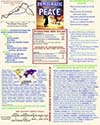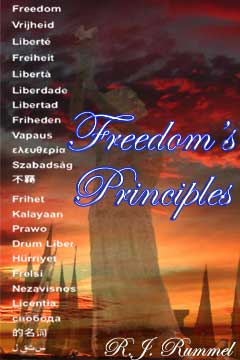[First published September 11. 2005] Freedom House has published a study on “How Freedom is Won (link here). The study covers all transitions to democracy that have occurred in the last 33 years, 67 of them, and shows that:
Far more often than is generally understood, the change agent is broad-based, nonviolent civic resistance—which employs tactics such as boycotts, mass protests, blockades, strikes, and civil disobedience to de-legitimate authoritarian rulers and erode their sources of support, including the loyalty of their armed defenders.
It goes on to say:
The central conclusion of this study is that how a transition from authoritarianism occurs and the types of forces that are engaged in pressing the transition have significant impact on the success or failure of democratic reform.
The study lists each transition, the factors involved, and provides a narrative on the transition. It concludes that the top down attempts at democratization is less successful than bottom up, nonviolent coalitions. Thus, the best way of aiding democratization from the outside is to:
aid the creation of “civic life,” broad based coalitions,
“transfer knowledge on strategies and tactics of nonviolent civic resistance,”
“provide enhanced resources for independent media and communications,” and
“expand space for nonviolent action through targeted sanctions.”
This is to say:
work to constrain insurrectionist and state violence and to expand the political space for nonviolent civic action. This means that in the cases of civil wars, governments and international organizations should seek solutions that lead to an end to hostilities and to internationally supervised or monitored elections. Democracies also should engage in preventive diplomacy to avert violence and support policies that prevent or limit the spread of violence in its earliest stages.
Because of Freedom House’s intensive and extensive analysis of freedom, nonfreedom, and their transitions for all the world’s countries, as shown in its annual Freedom In the World annual report (the 2005 Report is here), this study on how freedom is won is especially credible.
Does the study have anything to say that is relevant to Iraq and Afghanistan? Yes. I have pulled out the two relevant passages below:
. . . in the cases of civil wars, governments and international organizations should seek solutions that lead to an end to hostilities and to internationally supervised or monitored elections.
Efforts to restore personal security in extremely violent environments in countries that have suffered from war or civil war, therefore, can contribute in the long term to the emergence of civic coalitions for democratic change.
I believe that the American Coalition Iraq and Afghanistan is doing precisely this, while fighting the insurrectionists and terrorists. It is helping and aiding he process of creating a civic society with Iraqis and Afghans having the freedom to form political parties, businesses, educational institution, and other organizations that satisfy diverse interests (this is the invisible part of the war you don’t read much about in the opposition media). And the Coalition has brought in the UN and other international organizations to monitor and supervise democratic elections. The upshot of this Freedom House study is that if the insurrection and terrorism is defeated, the long run success of democracy in these countries looks promising.



 Posted by rudyrummel
Posted by rudyrummel 






